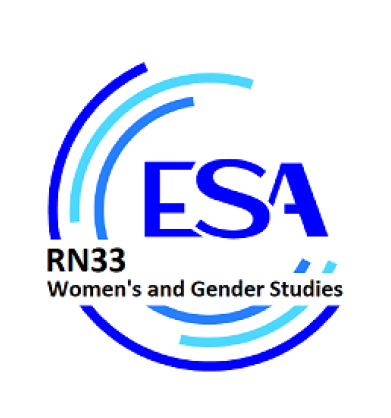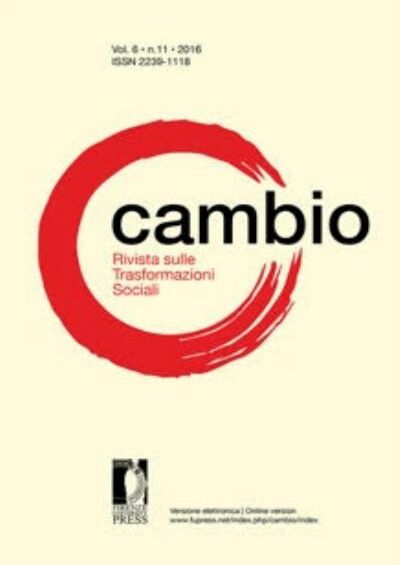Coordinators:
Lise Widding Isaksen, Norway
Elisabetta Ruspini, Italy
Cambio (OpenLab on Covid-19) and ESA RN33 “Women’s and Gender Studies” welcome contributions (articles, blogs, reflections, commentary pieces) specifically focused on “Gender and the Coronavirus Crisis”.
Call for contributions on
“Gender and the Coronavirus Crisis”
in collaboration with Research Network 33 ‘Women and Gender Studies’
European Sociological Association

DOWNLOAD PDF
Cambio (OpenLab on Covid-19) and ESA RN33 “Women’s and Gender Studies” welcome contributions (articles, blogs, reflections, commentary pieces) specifically focused on “Gender and the Coronavirus Crisis”.
We welcome contributions focusing on the following and related fields: care-and housework, informal/formal child care and elder care, gender identities and roles, social distancing, self-isolation at home, emotions and feelings, work, economic aspects, technology, digitalization of social relations, mortality rates, medical and welfare institutions, women’s resilience and agency.
Women and men are affected in different ways by the Coronavirus pandemic.
More men die of Covid-19 than women but the fact that women are disproportionally represented in the health and social services sectors substantially increases their risk of exposure to the disease. Moreover, gender inequalities can be exacerbated in the context of health emergencies: it is likely that women (and particularly some groups of women) will carry a much higher economic cost than men. Different sources underline the fact that: women are more likely to lose their jobs than men because women’s participation in the labour market is often in the form of temporary employment; the pandemic is increasing women’s burden of unpaid care work; the pandemic can make it more difficult for women and girls to receive treatment and health care; women and girls are at greater risk of experiencing racialized and gender-based violence and abuse due to the fact that mobility is restricted, people are confined and protection systems weakened.
Women are also crucial actors in tackling the coronavirus crisis, because they comprise most of the frontline healthcare workers globally and because they do the majority of unpaid care work in households.
The multiple challenges posed by the pandemic highlight the need to address its gendered impacts and to develop a gender-responsive approach to avoid reproducing or accentuating existing gender inequalities. There is also a need to address the unique needs of women and girls during COVID-19 and to include both women and women’s organizations at the heart of the COVID-19 global response (UN, 2020). Some further issues emerged as needing additional research are, for instance: if and how the gendered divisions of house-and care-work have been affected by the policy response to the pandemic (curfew, quarantine, self-isolation, closure of schools and care systems, mobility restrictions, social distancing shopping limits…); the impact on men’s identities; the changes in parent-child relationships; the situation of migrant domestic workers; how technology can support women, men, families.


